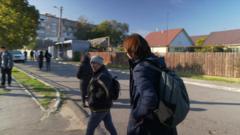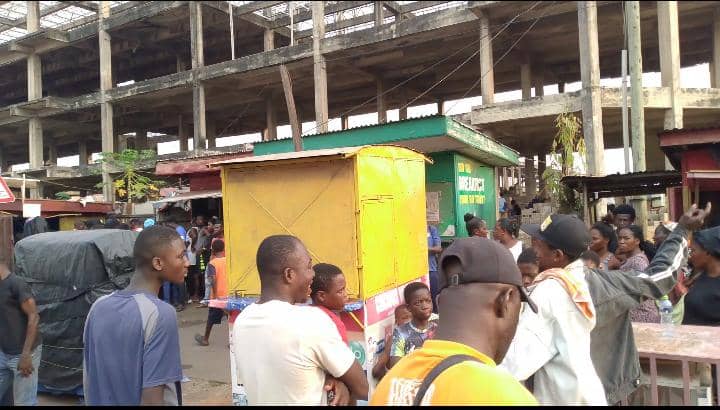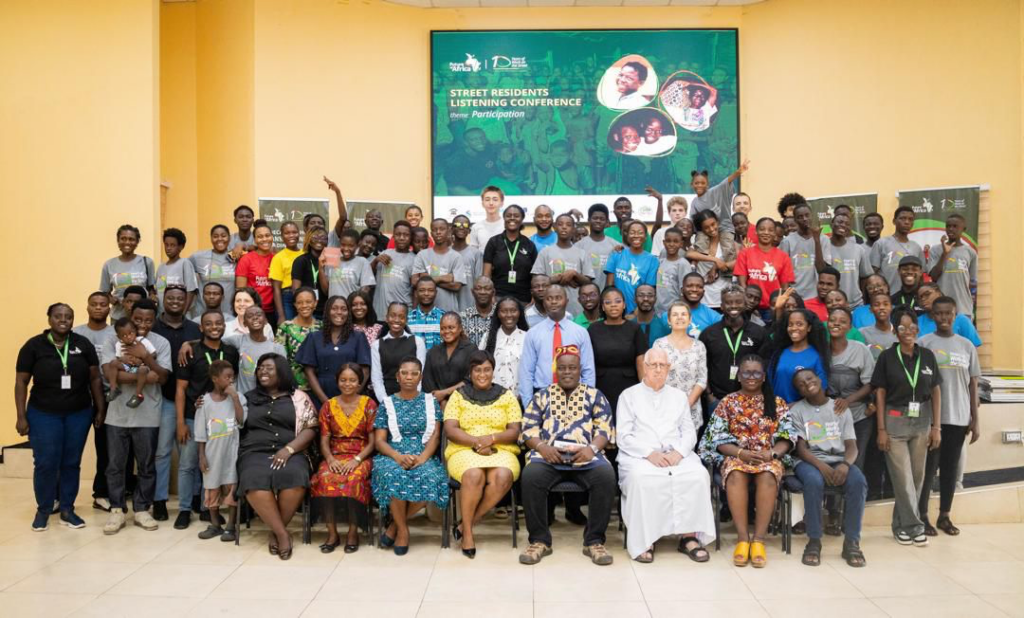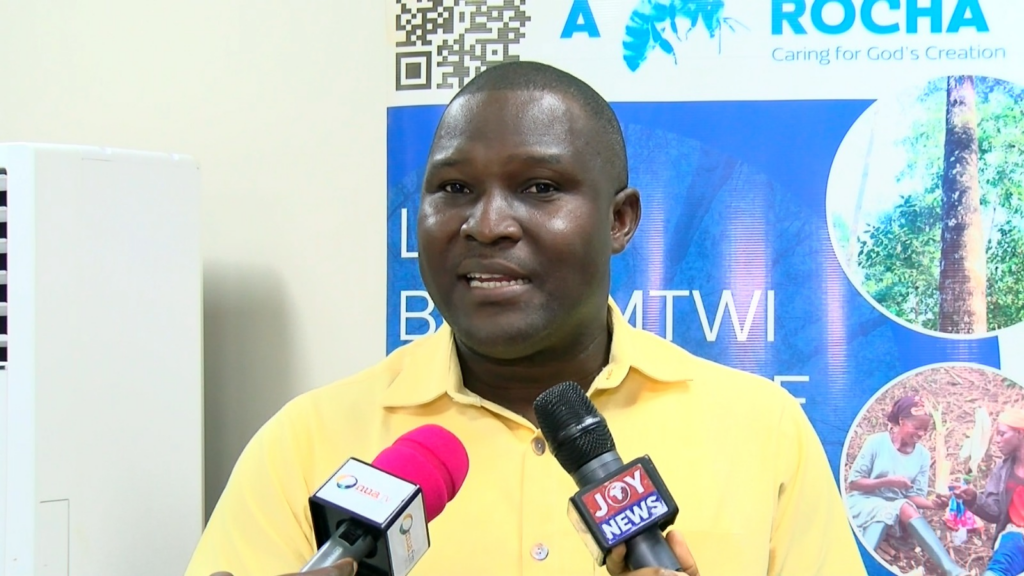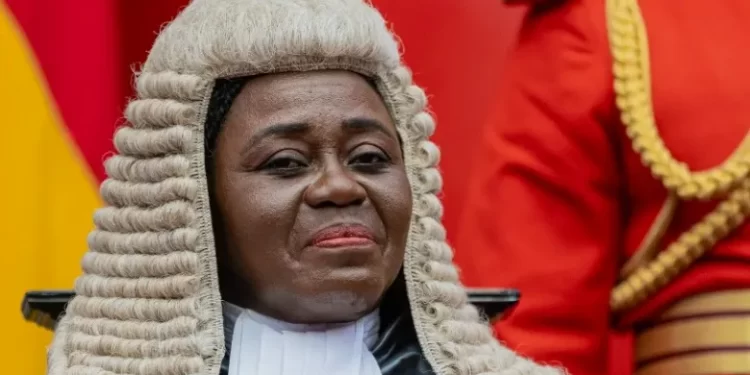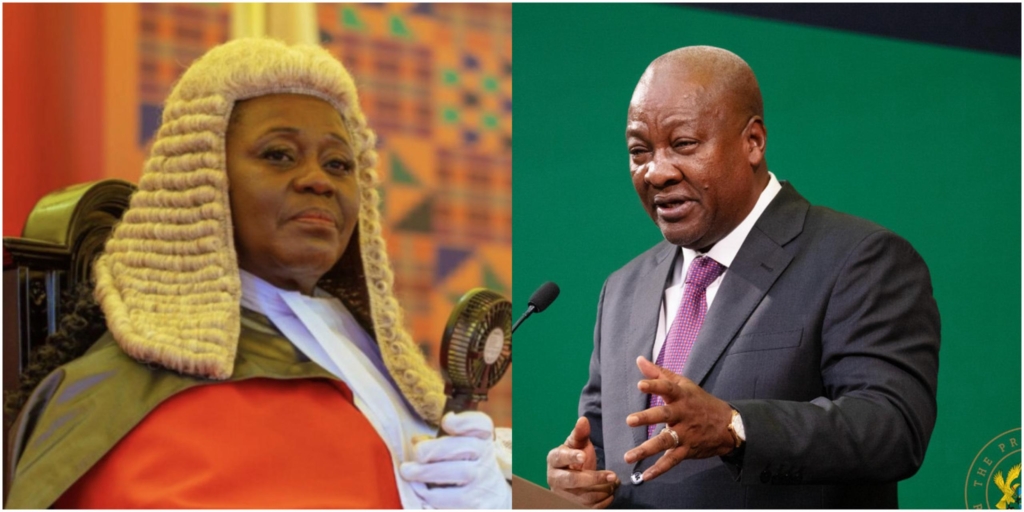Future of Africa (FoA), a non-profit youth development organisation, has outlined efforts to invest in the holistic development of over 200 street youths in the next three years.
The measures include providing psychosocial support, family reconciliation, hands-on skills training leading to employment, coaching and mentorship.
This was revealed by the organisation’s Founder and President, TK Mawuli Azaglo, at the “Street Residents Listening Conference” held at the ISSER Auditorium of the University of Ghana, Legon.
The event, which also marked the 10-year anniversary of the organisation’s work on the streets, brought together children and youth in street situations, academia, government agencies and other stakeholders to reflect on FoA’s achievements and impact, setting the stage to amplify the voices of children and youth living on the streets in Accra.
Held under the theme “Participation,” the conference took the form of ten round table discussions, providing a platform for young people who once lived on the streets to share their personal journeys from their struggles on the streets to education, skills training, family reunification, and employment.
Some of these youth are now in university, while others are training in natural hairdressing, catering, fashion design, auto-mechanics, food processing and other practical vocations.
The discussions were structured in three parts: a roundtable dialogue with partners and stakeholders; a group art presentation where residents showcased drawings inspired by their life experiences and hopes for the future; and a moving storytelling session where some formerly street-connected youth shared their journeys of transformation.
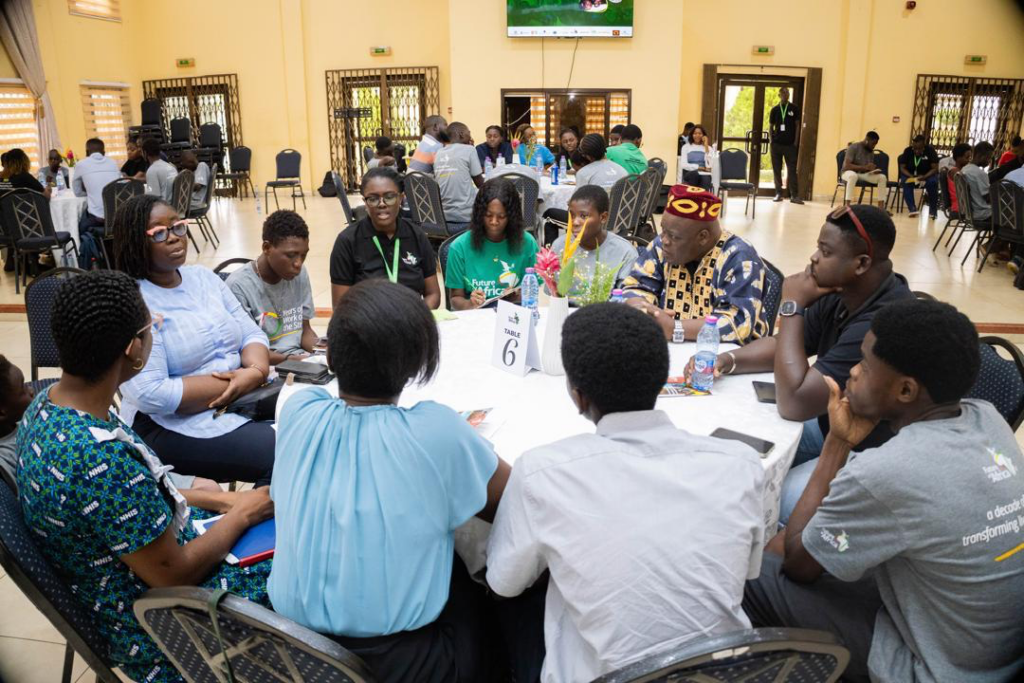
“Honestly, in the beginning, there was no hope. My only motivation was to do bad things and be involved in vices and probably end up in prison,” said one young man, now a university student.
“But Future of Africa found me and I was given multiple chances, not just food. Today, I’m in school, and I want to support others who are still out there.”
Another participant, currently a hairstylist, shared, “I didn’t know what I wanted. I just knew I didn’t want to keep running. They listened to me and didn’t force me.
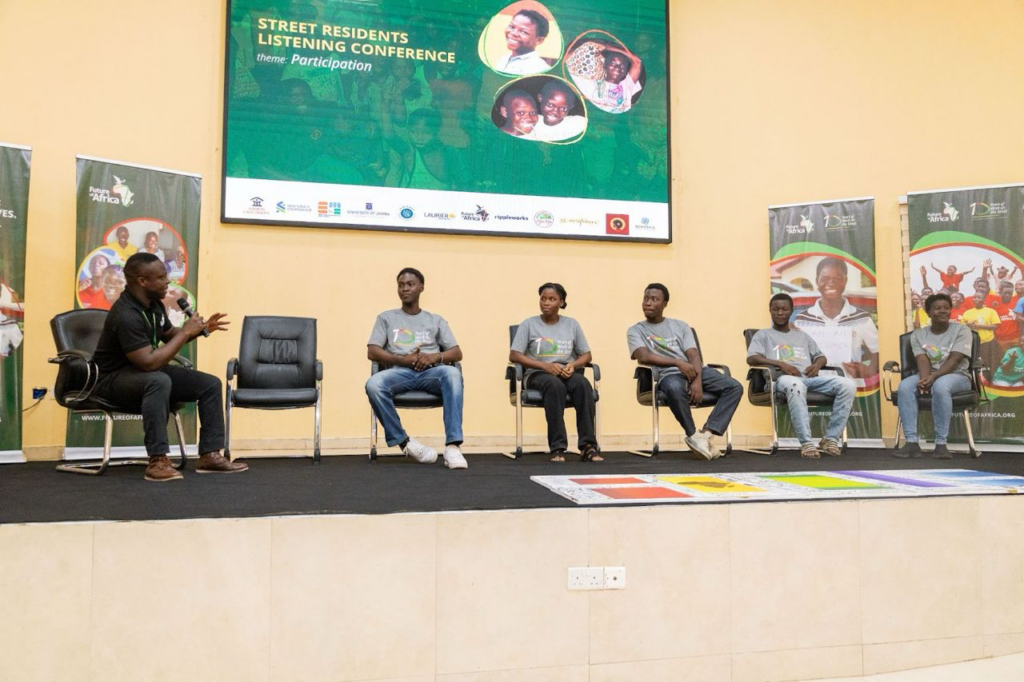
FoA helped me become a hairstyling apprentice, and now I am working full-time at Twist & Locs, doing something I actually enjoy.”
The discussions brought together beneficiaries, family members, social workers, volunteers, and institutional partners, many of whom have been part of the young people’s journeys over the years.
Among the attendees were representatives from a wide range of organisations, including the National Health Insurance Authority (NHIA), the National Youth Authority (NYA), Chance for Children, Madina Social Welfare, One Seed, Ashesi University, and Complementary Education.
A representative also attended on behalf of John Dumelo, the MP for Ayawaso West Wuogon.
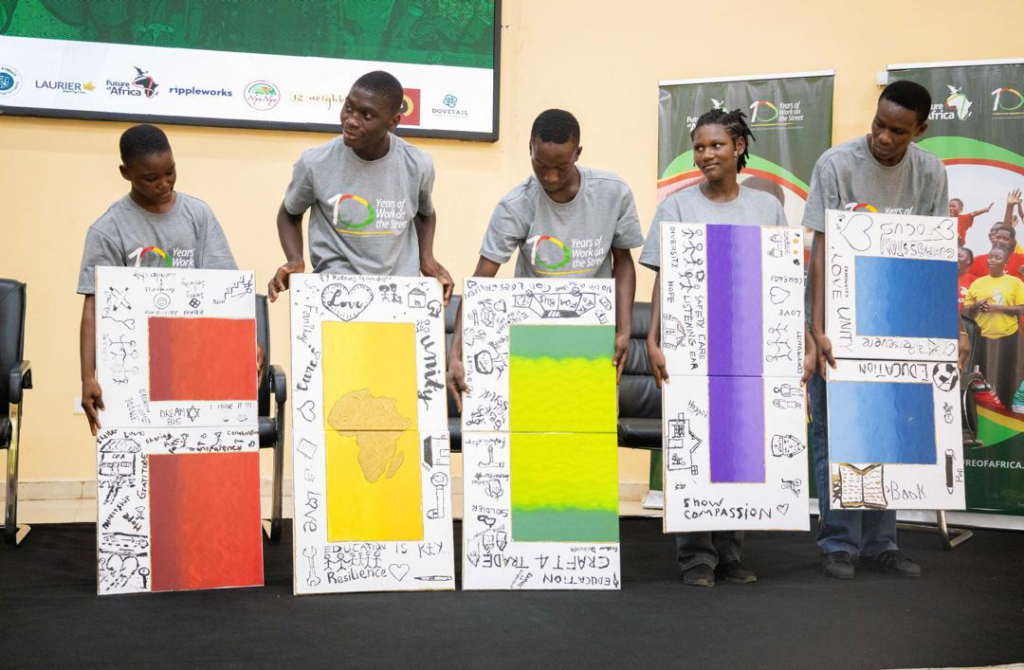
FoA Founder and President TK Mawuli Azaglo reflected on a decade of work, including leaving his job at Ashesi, spending nights on the streets, getting to know the youth and asking what they wanted for themselves.
“I have learnt that children and youth living on the streets don’t just need Christmas, Easter or birthday donations. They make us feel good, like we’ve done our part.
“But these children need more than food, our old clothes and money. They need our time. They need consistent and caring adults who show up over and over again.
“They need real relationships that are rooted in trust, patience, and love. They need a real chance at a better life. Not just handouts, but hands-on skills. Opportunities that lead to employment, dignity and independence.”
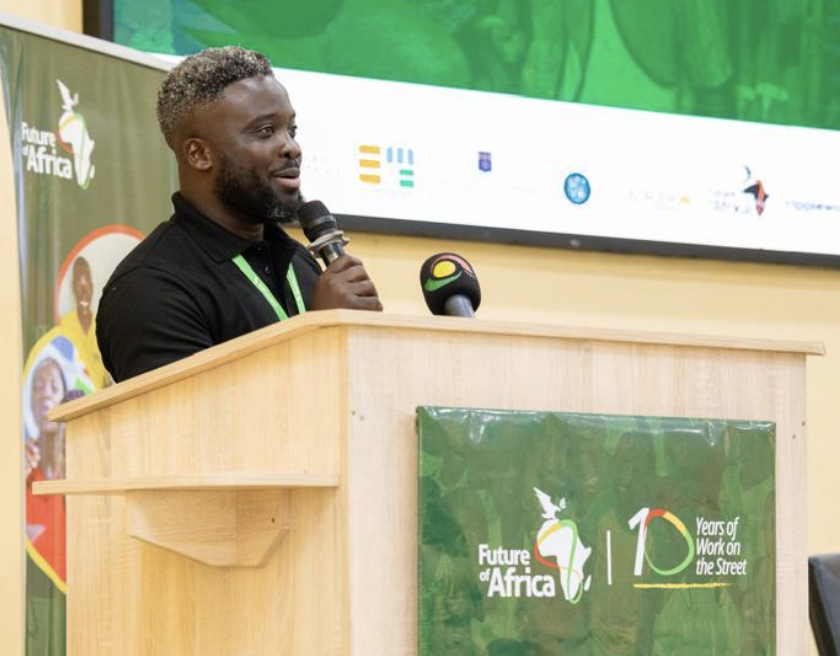
Veteran Catholic priest and humanitarian, Reverend Father Andrew Campbell, who delivered the keynote address, urged society to invest more in young people who often go unseen. He stressed the importance of listening to their stories and being positive role models.
“We need to make time to listen to the stories of these children instead of criticising and judging them. I say this for all adults: we should be role models for all these kids. We have a duty to ensure that they are properly cared for. They are indeed the future of Africa.”
He also offered words of encouragement to the children in attendance: “And to the lovely children present here, don’t pull yourself down. Each one of you is unique. You are God’s child and there is a purpose for your being here.
“Never think you are worthless. Be grateful for what you have and have hope. God loves you. Have a vision, pray about it and aim for that vision.”
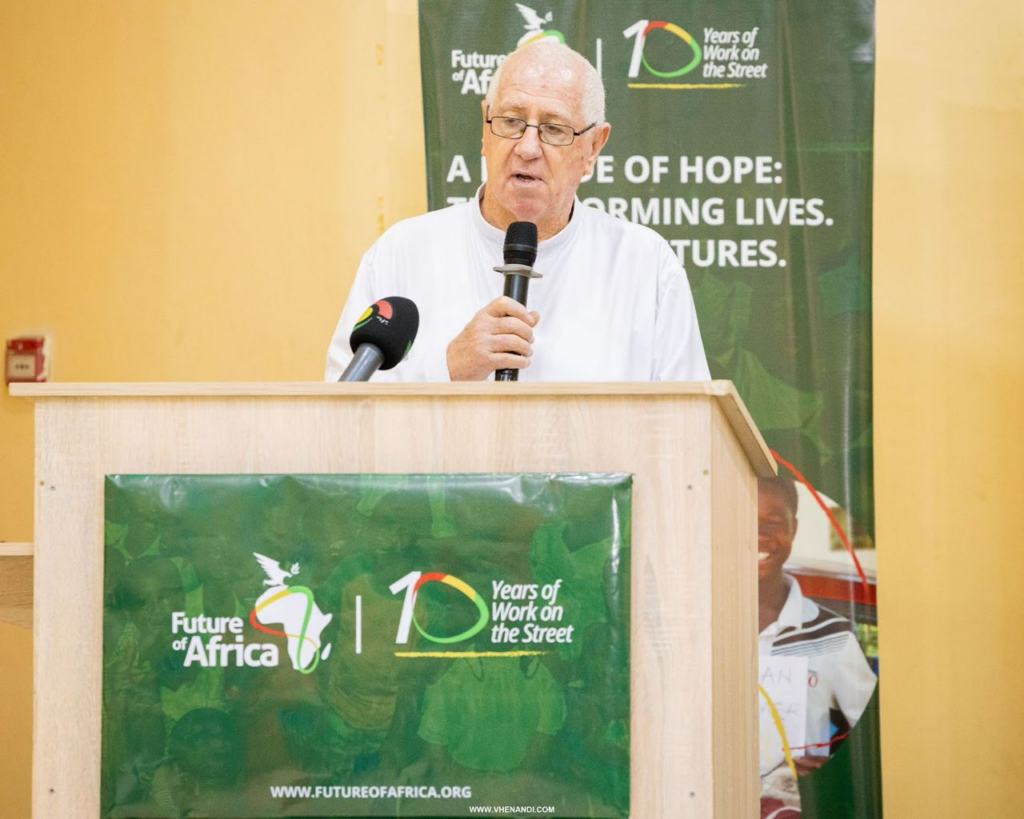
The Street Residents Conference forms part of activities commemorating International Street Children’s Day, observed every year on April 12 to raise awareness of the challenges faced by millions of street-connected children around the world.
According to estimates by UNICEF, over 150 million children globally live and work on the streets, often without access to basic services, education, or protection. As FoA marks a decade of work, its renewed commitment underscores the urgent need for collective action in transforming these statistics, one life at a time.
FoA’s model includes a four-year holistic programme for street youth aged 14 to 18.
It begins with the weekly Sunday Street Outreach and Wellness Wednesday Program, where university and high school students engage the children directly in their spaces, listen to them, and invite those interested in leaving the streets to join FoA’s Skills and Youth Development Program.
From there, the individuals receive consistent support across wellness, family reconciliation, education, and vocational training leading to employment.
Since 2015, FoA has worked with hundreds of youth and families, aiming not just to rescue young people from the streets but to equip them to become healthy and responsible adults who can take care of themselves and their communities.
DISCLAIMER: The Views, Comments, Opinions, Contributions and Statements made by Readers and Contributors on this platform do not necessarily represent the views or policy of Multimedia Group Limited.

